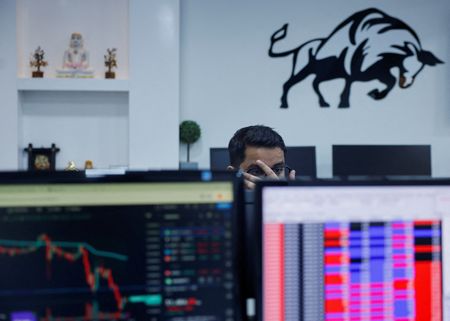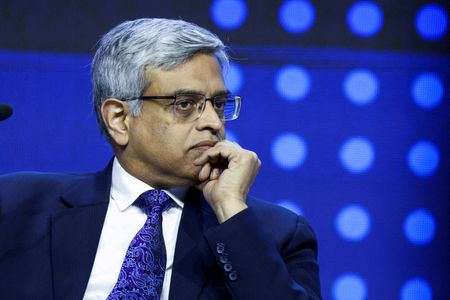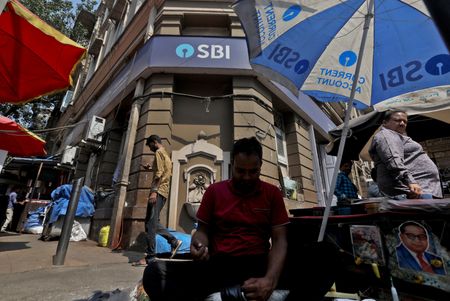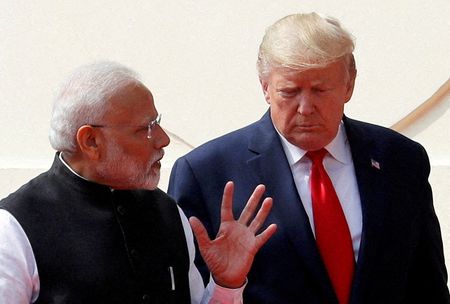By Bharath Rajeswaran
(Reuters) -India’s benchmark indexes rose on Thursday after a six-session slide, led by financials, although hotter-than-expected U.S. inflation data and mounting trade war concerns capped gains.
The Nifty 50 advanced 0.5% to 23,159.75 as of 10:32 a.m. IST, while the BSE Sensex added 0.47% to 76,533.79.
Both benchmarks swung between minor gains and losses in early trade.
The indexes fell 3% over the last six sessions, hurt by escalating trade war fears, earnings worries and persistent foreign selling.
Those worries still persisted after U.S. President Donald Trump said he would soon impose reciprocal tariffs on every country that charges duties on U.S. imports.
Indian Prime Minister Narendra Modi is due to visit the White House on Thursday, with planned tariff reductions in at least a dozen sectors.
“Domestic markets have been oversold and therefore likely to rally on any positive updates from the Trump-Modi meeting today, especially on reciprocal tariffs,” said VK Vijayakumar, chief investment strategist at Geojit Financial.
High-weight financials rose 1%, led by Kotak Mahindra Bank, after the Reserve Bank of India lifted the ban on the private lender from issuing credit cards and enrolling clients digitally.
Credit card services provider SBI Cards and Payment Services jumped 4% after Macquarie upgraded the stock to “outperform” rating from “hold”, citing gains from falling costs and easing liquidity over fiscal years 2025 to 2027.
Eleven of the 13 major sectors advanced, on the day. The broader small and midcaps rose about 1% each.
The rising prospects of fewer U.S. interest rate cuts this year after a hot January consumer price inflation data could prolong foreign outflows from Indian stocks, capping any upside, two analysts said.
Higher interest rates in the U.S. make emerging markets such as India less attractive for overseas investors.
The U.S. inflation reading also offset the optimism from easing domestic retail inflation.
(Reporting by Bharath Rajeswaran in Bengaluru; Editing by Sherry Jacob-Phillips, Sumana Nandy and Eileen Soreng)










